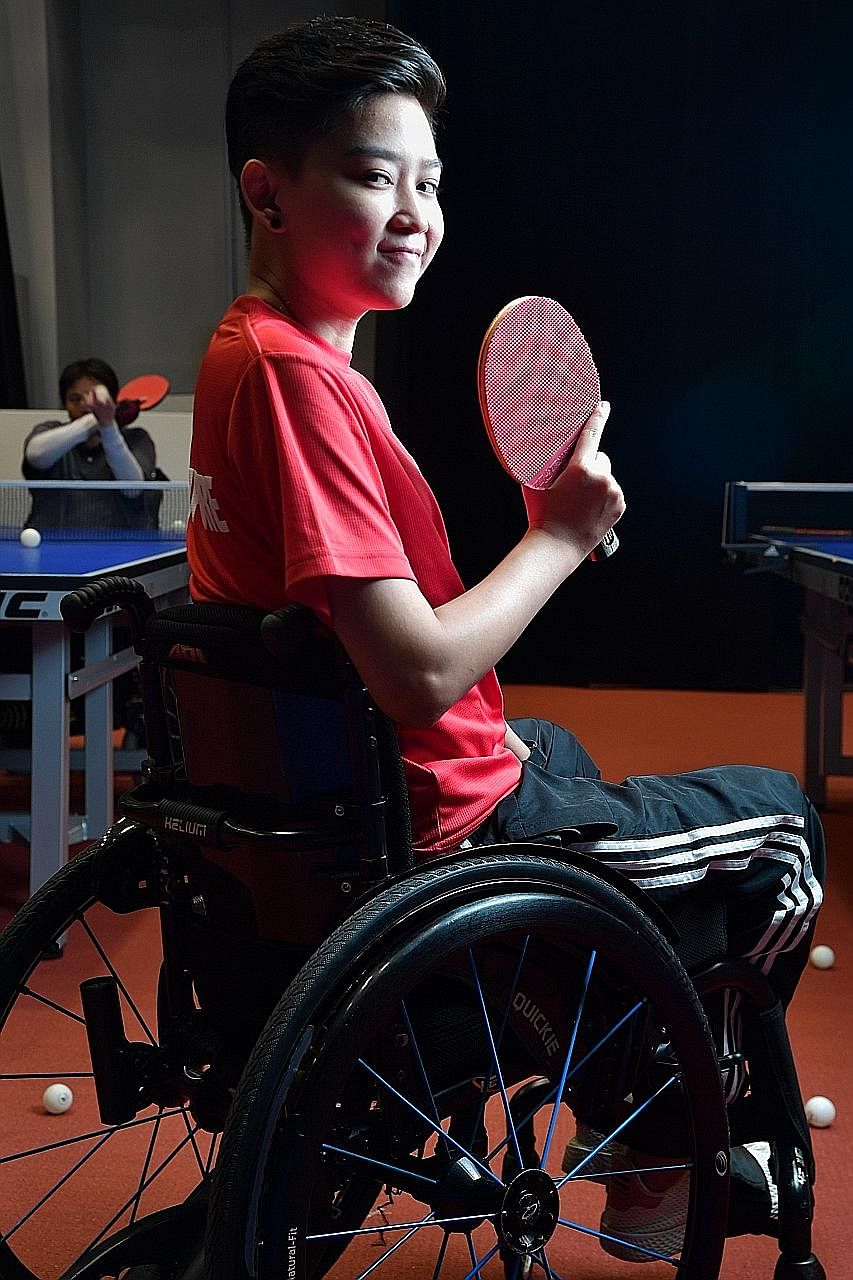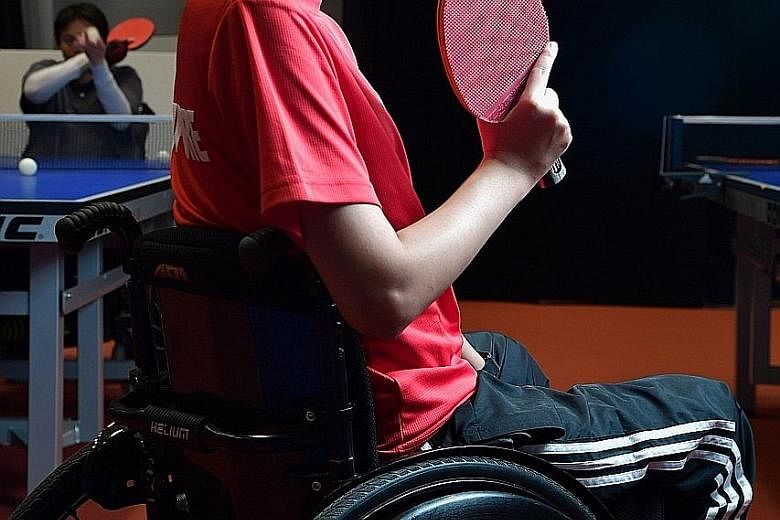Up until today, almost seven years after the incident in October 2012, Ms Claire Toh, now 26, is still clueless as to how she fell from the fourth storey of a condominium her friend was living in.
But the consequences are with her forever.
She is now paralysed from the chest down and suffers constant nerve pain, which she describes as a shooting sensation down her limbs.
There are other health woes, such as frequent infections of her urinary tract caused by her catheter.
As far as she can remember of that night, she was neither suicidal nor drunk when she fell, though she did drink a few beers with her colleagues when her bartending shift ended.
Afterwards, she got into a taxi to her friend's condominium and the next thing she remembers is waking up in the intensive care unit of Changi General Hospital.
She said: "No one knows what happened. I don't remember anything at all."
A cleaner found Ms Toh on a grass patch at the foot of the condo block. They also found her bag outside a fourth-storey unit that was not her friend's.

In fact, the friend had waited for her and assumed Ms Toh had changed her mind about visiting when she did not show up.
For the first two weeks in hospital, she needed a breathing tube. After that was removed, a physiotherapist came to her hospital bed with a wheelchair.
"The physiotherapist said: 'We need to get you used to using a wheelchair.' I asked her: 'For how long?' She replied it was for the long term and I just cried. I wasn't expecting it," said Ms Toh.
"My first thought when I realised I was paralysed was: How am I going to walk my dog and how will I take care of my mum?"
Ms Toh was hospitalised for about four months but it took her less than one month to come to terms with her plight. In fact, she found herself comforting friends and relatives, who cried inconsolably at times.
She said: "I cried at most three times (after the fall). I was very realistic. There was no point dwelling on it. I had no choice but to accept the fact that I can't walk again. I didn't blame myself and all I wanted was to be as independent as I could."
It took some time but gradually she regained her independence.
Initially, it was hard to lose her privacy. She needed help to go to the toilet and bathe, among other daily living activities able-bodied people take for granted.
But she has since learnt how to do most things - including going to the toilet, bathing and cooking simple dishes - herself.
The reality for this second of three children was that she was no stranger to tragedy.
Her father was in jail for drug offences for about a decade, during most of her growing-up years, and died of a heart attack when he was just 43, about a year before her fall.
The day before his heart attack, they had a fight about something she no longer remembers. Before they went to bed that night, however, they made peace and she thought it might be the start of a better relationship between them.
The next day, he died of a massive heart attack. She was in school and had just finished a science exam when she received the news.
She said: "It took me a long time to get over my dad's death as I blamed myself, thinking that if we hadn't fought, the heart attack might not have happened.
"I think death is something you never get over, but just learn to live with."
Her mum has since remarried and her step-father is a taxi driver. Ms Toh said she is very close to her family. She has two sisters, aged 24 and 29.
After her fall, the N-level holder went to Kaplan Singapore, a private school, and obtained a diploma in mass communications.
But getting a job has been challenging. She said: "When I said I use a wheelchair, I did not get a reply from many of the firms I had approached."
Being financially independent was important to her as she had worked part-time since she was 14, waiting tables among other things. The last thing she wanted was to add to her mother's financial burden.
She has landed a few jobs, such as that of personal assistant. Today, she is a telemarketer for a telco.
Perhaps the brightest spot since her accident has been how she discovered para table tennis, becoming good enough to represent Singapore in the 2015 and 2017 Asean Para Games. She used to play in school, but said playing table tennis in a wheelchair is a whole new ball game and a lot harder.
Though she has yet to win a medal at a tournament, Ms Toh chalked up a win in December last year in the Chiang Mai Open, beating world No. 7 Chilchitraryak Bootwansirina. The Thai had defeated Ms Toh before, so this win was a major morale boost.
Ms Toh, who trains thrice a week now, said her goal is to improve and win a medal in the Asean Para Games next year in the Philippines.
Coach Wang Wei Hua described her as a hardworking player who is quick to pick up techniques to improve her game. Ms Wang said Ms Toh has improved tremendously in the past two years.
After everything that has happened, Ms Toh tells The Straits Times that being paralysed was not the worst thing to have happened to her.
"I don't think that it's necessarily a bad thing and it could well be the best thing that has happened to me too, depending on how you choose to view it," she said.
"I am a better person now as I'm more hardworking and I have more empathy for others. I'm constantly trying to do better, be it at my job, at table tennis or towards achieving independence. I used to be someone who procrastinated a lot."
She is also grateful for her family's support and every single person who helped her after the accident.
Asked what advice she would give others to whom disabilities have befallen, she said: "Just take all the time you need to heal physically, emotionally and mentally, and then move on. Just take baby steps, set small goals and work towards them.
"Don't keep looking back - you can't change anything and it will make you feel worse. And don't be afraid to ask for help."
GENERATION GRIT
Know of a Singaporean aged 35 or below who has shown grit amid life's adversities? E-mail us at stnewsdesk@sph.com.sg
TO VOTE, GO TO STR.SG/STGGA19


